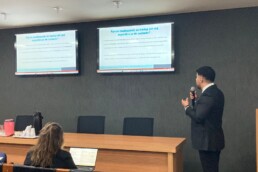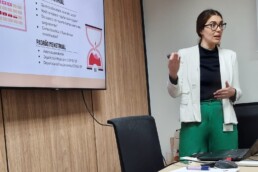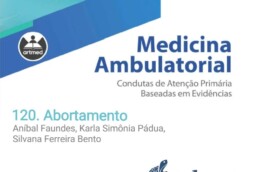 The Ministry of Health trained Primary Health Care (PHC) teams in the state of Amazonas to insert copper intrauterine devices (IUDs). With the action that lasted a week, 23 doctors were trained and 1,154 women were assisted with the device. The initiative aims to reduce the number of unplanned pregnancies and, consequently, contribute to the reduction of maternal mortality in the state.
The Ministry of Health trained Primary Health Care (PHC) teams in the state of Amazonas to insert copper intrauterine devices (IUDs). With the action that lasted a week, 23 doctors were trained and 1,154 women were assisted with the device. The initiative aims to reduce the number of unplanned pregnancies and, consequently, contribute to the reduction of maternal mortality in the state.
The training also strengthens family planning actions and expands access to long-term contraceptive methods for women living in remote and more vulnerable areas. The action also had the partnership of the State Department of Health of Amazonas (SES-AM) and municipal health departments.
“We know how difficult it is for many riverine and indigenous women to have access to contraceptive methods because they live in very remote areas and far from health services. The IUD is a safe and efficient alternative that can meet the needs of these women.”, highlighted the deputy director of the Department of Strategic Programmatic Actions of the Ministry of Health, Lana de Lourdes Aguiar Lima.
The device is a long-lasting, safe and effective method of contraception that does not depend on the user’s habit to take effect. The IUD lasts for 10 years and is offered free of charge by the SUS to all states in the country. “It is not enough to just offer the method, it is necessary that professionals are qualified to perform the insertion procedure. That’s why this project is so important to guarantee access”, reinforced Lana.
The initiative adds to the actions developed by the MS to reduce severe morbidity and maternal mortality from preventable causes, especially in the context of the Covid-19 pandemic. In December 2021, the ministry also carried out the training of 41 doctors and the insertion of 693 intrauterine devices in women in the state.
Reduction of maternal mortality
Earlier this month, the Ministry of Health launched, in partnership with the Federal University of Amazonas (Ufam), the State Department of Health of Amazonas (SES-AM) and municipal secretariats of 11 more municipalities in the Amazon, the project Telemonitoramento do pre- low and high risk birth and obstetric complications in the state.
The initiative was celebrated through a Decentralized Execution Term with UFAM in the amount of R$ 5.2 million, for the implementation of an obstetric telemonitoring platform that allows the integration, incorporation and monitoring of clinical data and information produced by the PHC teams, specialized outpatient care, Mobile Emergency Care Service (SAMU), small hospitals, low-risk maternity hospitals and reference maternity hospitals for high risk in the State of Amazonas.
The project also provides for the provision of consultation to health professionals with specialists available 24 hours a day to support the clinical management of prenatal pregnancy and the early detection and timely treatment of obstetric complications.
In 2021, the ministry also launched the SUS Prenatal Force Project to support the organization of low-risk prenatal care with a focus on reducing early maternal and neonatal morbidity and mortality, through the strengthening of clinical management actions during pregnancy. , diagnosis and treatment of syphilis and HIV during pregnancy, collection of cervical cancer screening and dental prenatal care.
352 professionals from the Family Health and Oral Health Strategy were trained in the municipalities of Manaus, Rio Preto da Eva, Iranduba, Presidente Figueiredo and Parintins. The actions continue in 2022 for the other priority municipalities.
Investments in Amazonas
The Federal Government, through the Ministry of Health, allocated more than R$ 30 million in resources to the state to reinforce qualification and care actions for pregnant and postpartum women. Of this total, R$ 16.6 million were allocated, through Ordinance No. 3,186 of November 26, 2020, for the renovation of the technological park of the maternity hospitals.
The objective was to provide adequate management of pregnant and postpartum women who need intensive care. In addition, another R$13.3 million was invested in carrying out strategic actions to support pregnancy, prenatal care and the postpartum period, as well as measures to reduce the spread of the new coronavirus, through Ordinance No. 2222 of August 25, 2020 and Ordinance No. 731 of April 16, 2020.









